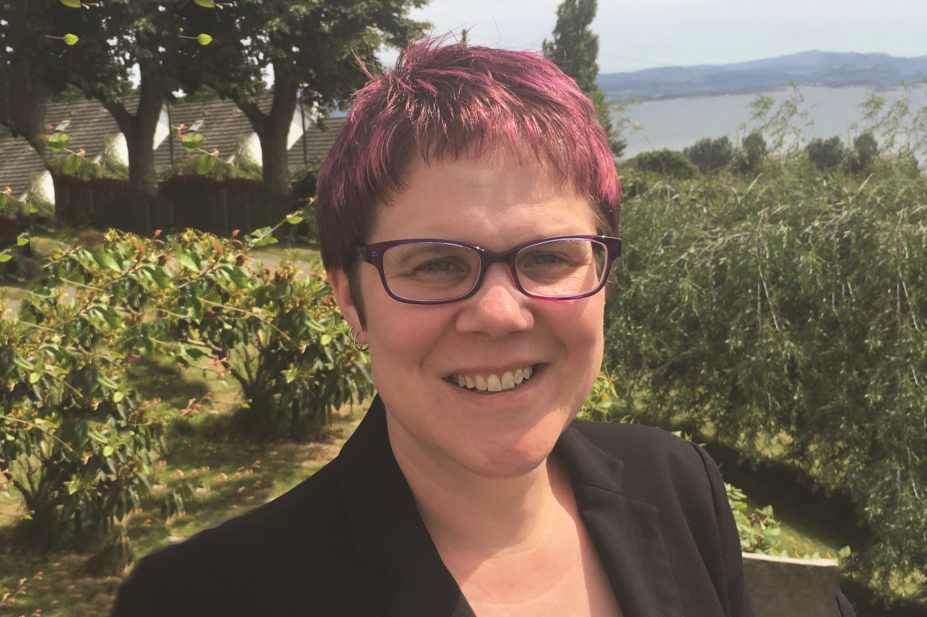
Clare Morrison
Pharmacy has been campaigning for years for read-write access to a shared patient record. Poor information is one of the biggest risks to patient safety in health and social care, and it’s an issue that affects every patient-facing pharmacist.
This widespread impact is one of the reasons why the Royal Pharmaceutical Society (RPS) manifesto for the May 2021 Scottish parliamentary elections calls for “enabling an integrated and connected pharmacy workforce”. But what we are campaigning for now goes beyond what’s been said before. The priority is to create a single digital patient record; a single source of truth, all stored in a data cloud.
We want every patient to have just one universal record, held in the cloud: that is, shared securely on servers connected through the internet rather than stored on individual systems.
Every profession would write information into this shared record from their own clinical system and every profession would read this same record from their clinical system, although with a different view according to what is appropriate for their role.
Imagine the difference this would make to patient care. All health and care professionals would have timely access to the clinical information they need to do their jobs safely and efficiently. And that information would be completely up to date. If a patient consulted their GP and half an hour later visited their community pharmacy, the pharmacist could see the GP consultation record. So much time currently spent on phone calls, emails and letters would be saved.
Patients would not be asked the same questions multiple times by different professionals. To really deliver person-centred care, patients should be able to access their record, enter information and be empowered to share it with any professional they chose. It is, after all, the patient’s data.
The impact of a single shared patient record on pharmacy would be transformational. Medicines reconciliation would be a thing of the past. In Scotland, the pharmacotherapy service has resulted in GP practice pharmacists taking on a huge workload associated with medicines reconciliation: if that was no longer needed, those pharmacists could prioritise clinical work like polypharmacy reviews, supporting patients with complex pharmaceutical care needs and monitoring patients after medicine changes.
However, it’s not just about workload. Poor medicines reconciliation can result in a patient receiving the wrong medicine or the wrong dose: a single patient record removes this patient safety risk.
Pharmacists working in GP practices and hospitals already have access to a lot of information, although no one sees the complete picture. The situation is worse in community pharmacy, where access to information is more limited. The COVID-19 pandemic has resulted in some progress, but it’s not nearly enough.
In recent years, the conversation has been about making health and care IT systems interoperable with each other. In other words, every IT system ‘talks’ to every other IT system. Given the number of clinical systems used across pharmacy, GP practices and hospitals alone — without considering the plethora of systems used by allied health professionals and across social care — it turns out that is too complex, so it’s time to move on.
Creating a single national electronic patient record held in a data cloud is the answer: it means that each individual IT clinical system only needs to learn to talk to that one system. IT systems suppliers would not have to work out which other IT systems to prioritise for interoperability: they would only need to be interoperable with the single source of truth. Long-term, this would be more straightforward and cost-effective.
Of course, there are lots of things that need to happen on this journey. Security and data standards are key, as is engagement with the public and clinicians to create a platform that delivers what is needed.
In February 2021, I spoke with Iain Bishop, eHealth pharmacy adviser for NHS National Services Scotland, at the Digital Health & Care Scotland conference about this issue. And I wrote a blog for Holyrood magazine. We gained a lot of traction across NHS Scotland. Comments from pharmacists included: “This really is the holy grail”; “This is absolutely essential and would greatly improve the ability of everyone to develop services to improve care”; and “If only, this would be great”.
Indeed, it was an aim of Scotland’s last digital strategy in 2018; and, encouragingly, both the NES Digital Service and Digital Health & Care Institute have been working on the creation of a national digital platform in Scotland. But we aren’t there yet. Scotland’s new digital strategy, published on 11 March 2021, describes how the maturity of digital technologies provides “unprecedented opportunities to reimagine how public services are delivered” and allows connections between unrelated services, “so responses are seamless”.
Pharmacists have told us this matters to them. We believe it’s time for RPS Scotland to campaign loudly to make progress urgently. A single shared patient record would deliver safer and better care for patients, and enable efficient working practice for pharmacists right across our profession.


